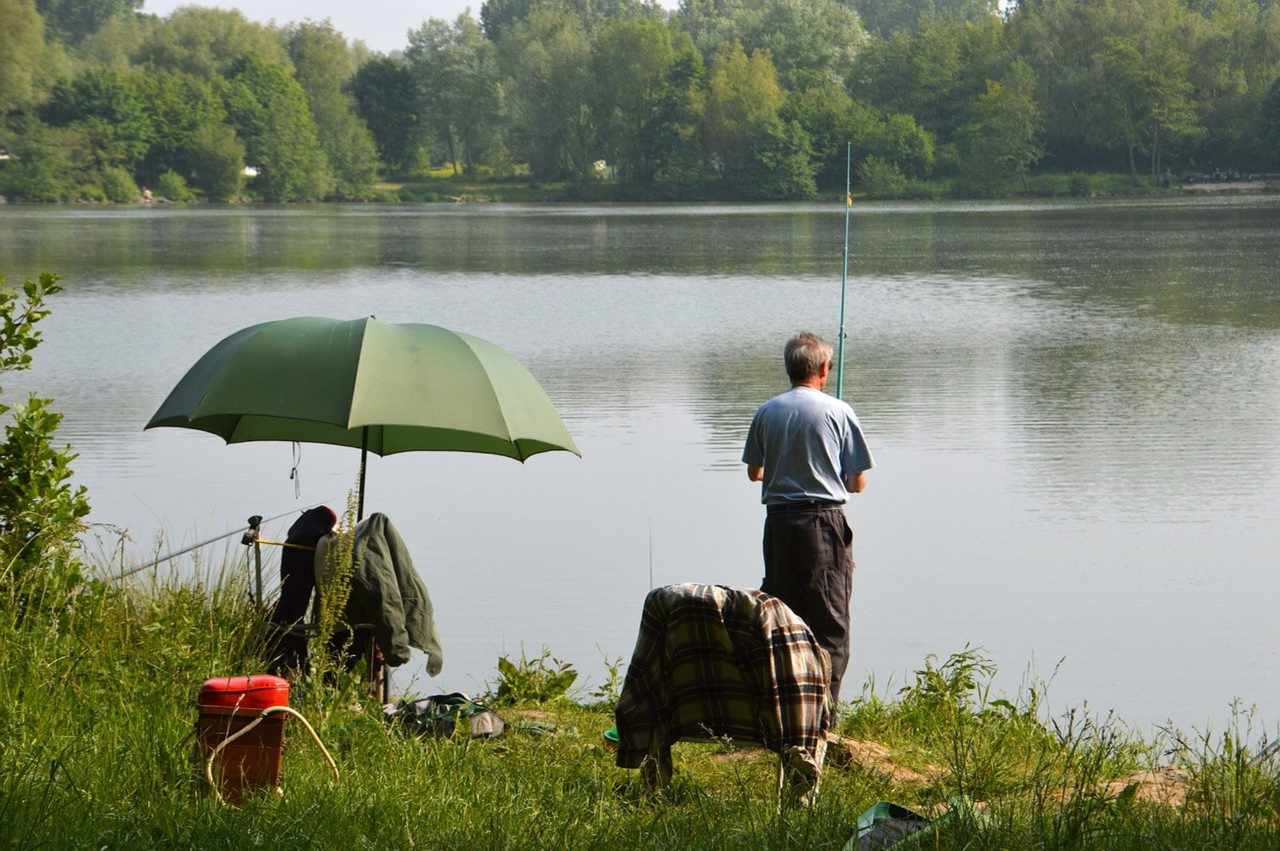Welcome to our complete guide to living in France; whether you're considering to move or just curious about what life is like in this beautiful country, our guide aims to provide all the information you need to plan your future move, and new French lifestyle.
From the bustling streets of Paris to the picturesque countryside of Occitanie, from regional festivals or artisanal markets to skiing in the Alps and hiking in the countryside, there's always something new and exciting to discover in France.
In this guide, we'll explore the country's culture, healthcare and education systems and the cost of living. We'll also provide tips and advice on navigating the challenges of living in a foreign country, from finding housing to learning the language. Whether you're a student, a professional, or a retiree, we hope our guide will help you transition to living and settling in France.
Living and Exploring France
France is the largest country in Western Europe, measuring approximately 1000 kilometres from north to south and east to west. With over 90 million tourists visiting each year, it is one of the most popular tourist destinations in the world. The country has more than 600 foreign countries represented and a population of around 67 million.
Once you live and settle in France, you will discover many places and opportunities in its amazingly diverse regions, from coast to mountain, ancient volcanoes to Unesco-listed prehistoric caves, wild rivers to lavender fields, classic hiking trails, museums or chateaux visits, and luxury shopping on the Riviera. Our top tip is to learn about the excellent train network and local public transport systems.
The French Climate
France experiences a warmer climate compared to most northern countries of Europe and has four distinct seasons. The country enjoys extended periods of sunshine, particularly in the summer, which is perfect for outdoor living and al fresco dining. However, the climate can also get cold during the winter months, with heavy snowfall being a possibility. The reason for these climate differences is due to France's geography and topography. Visit our blog to learn more about the French climate.

The Healthcare System
France’s healthcare system has a reputation for excellence, and since 2000, the Couverture Maladie Universelle (CMU) has provided French residents with the right to state healthcare at a relatively low cost. If you relocate to France, you must apply for affiliation to the state healthcare system or CPAM. Healthcare isn’t completely free, and you will need top-up health and medical insurance coverage. Learn about the French healthcare system, how to get started and apply for the carte vitale insurance card.
The Education System
In France, education is highly valued, and the government provides public funding for schools. However, private and international schools are also available for those who prefer them. These schools often offer specialised curriculums that cater to specific interests or learning needs. For parents looking for information on local schools and nurseries, contacting your local Mairie is an excellent place to start. They can provide information on the schools in your area and help you find the right one for your child.
It's recommended that parents participate in school activities as they can be a great way to meet new people, both parents and children. Most schools have a parent-teacher association that organises annual events and activities to raise funds for school activities. These events provide an excellent opportunity to get involved in your child's education and make a positive contribution to the school community. Getting involved in school activities can also help parents stay informed about their child's progress and any issues that may arise.
Working in France
If you plan to study or work in France, you must apply for a different type of long-stay visa under the self-employed category, the multi-year residency permit. This allows you to stay in the country for up to four years longer than the standard long-stay visa. If you’re working in the country but not self-employed, you can apply for residency instead of the long visa option.
Business owners have extra considerations to work through, as well as entrepreneurs, tech innovators, investors and highly-skilled workers who should consider the France Talent and Tech Passport. You’ll need to apply for a long-stay visa under the self-employed category, but you’ll also need to verify specific criteria, including economic feasibility and business success.
Job Opportunities for Expats
France offers a variety of job opportunities for English-speaking expats, ranging from teaching and translation jobs to positions in tech and finance. Teaching English as a foreign language is popular for many expats, with language schools, universities, and private tutoring opportunities available. Translation and interpretation services, particularly law, medicine, and business, are also in high demand. In the tech sector, skills in software development, data analysis, and cybersecurity are highly sought after. Similarly, the finance industry offers banking, insurance, and financial consulting opportunities.
There are several resources to consider when looking for employment and job listings in France. Online job boards such as Indeed, Monster, and LinkedIn list positions in various fields and sectors, while Pôle Emploi, the French national employment agency, also offer job listings. For teaching jobs, sites like TEFL.com can be helpful.
Networking events, recruitment agencies, and directly contacting companies can also be effective strategies for finding job opportunities. However, it's important to note that while English is often used in international business, having a basic understanding of French will significantly broaden job prospects and improve daily life in France.
The 35 Hour Working Week
In 2000, France introduced a 35-hour workweek to decrease unemployment and enhance work-life balance. The law mandates that employees cannot work more than 35 hours per week. Any work done beyond this limit is considered overtime and compensated at a higher rate. This law applies to all companies, regardless of their size. The 35-hour workweek is an essential aspect of French labour law and continues to influence the country's culture and work-life balance.
The Minimum Wage - What is SMIC?
As of 2023, the minimum wage in France, known as the "SMIC" (Salaire Minimum Interprofessionnel de Croissance), is set at €11.65 per hour, €1,766.92 per month, and €21,203.00 per year. This means that any employee in France, regardless of their industry or job type, must be paid at least this amount for their work.
The SMIC is reviewed annually by the French government and is subject to change based on economic indicators such as inflation and cost of living. It is important to note that some industries and job types may have higher minimum wage requirements due to collective bargaining agreements or specific regulations.
Workers’ Holidays
In France, workers get five weeks of paid vacation per year plus eleven public holidays. Holiday entitlement increases with length of service, up to 30 days. Employers pay normal salaries during holidays, and workers can take holidays at a convenient time. Many if not most workers take holidays in July and August, usually heading south.

Retiring and Receiving a Pension
If you are a resident of France, it's crucial to be aware that you're liable to pay taxes on your worldwide income. This includes any pensions you may receive, even those from outside France. While you are not expected to pay taxes twice, it's essential to declare your pension in France. This ensures you stay compliant with French tax laws and avoid penalties or legal issues.
If you're considering moving to France and plan on receiving a pension, discussing your arrangements with a financial advisor is an excellent idea. They can help you understand the economic implications of retiring in France and help you make informed decisions.
Our UK-based tax experts can provide guidance on tax laws and regulations, including the declaration of your pension income. We can also help you with regular money transfers to ensure that your pension payments are received on time.
The Banking System
A bank account is essential if you relocate, work in France or require a French mortgage, and you’ll need it to pay utility bills if you own a property in France. One of the main differences to be aware of is that it is illegal to make a payment if there are insufficient funds in your account to cover it. Bouncing a payment may result in your name being blacklisted, and you could be banned from holding a credit or debit card for several years.
When choosing a bank in France, in most cases, the bank you choose will be based on a personal recommendation or convenience. In some of the small villages, you may find that there is only one bank. While most banks offer online services, some expats will prefer to find a local branch with an English-speaking advisor.
French Taxes
As a French resident, you must pay tax on anything you earn, regardless of nationality or residency status. It’s also worth checking out taxes on properties owned and used solely for income. If you don’t reside in France, the tax must be deducted from that income, and local taxes in each area need some delving into. Taxes in France can be higher than in other countries, especially for high earners. However, France also offers generous social benefits, such as subsidised childcare and education. Our French tax experts can provide guidance on minimising our tax exposure in France and assisting with the administrative process.
Inheritance Laws
It is imperative to understand that the Inheritance Laws in France hold supremacy over the laws of other countries concerning any property owned in France. These laws mandate that in the event of a person's death, their estate must be divided among their children. It is a wise decision to seek the guidance of a specialist, particularly if the property is co-owned. By doing so, one can be sure to navigate the complexities of French inheritance laws and ensure that their wishes are carried out as they desire.
Paperwork and Admin
Moving to France involves much paperwork. You must take care of things like opening a bank account, getting insurance (home insurance is mandatory in France), obtaining a driver's license, and much more. This process can be quite complicated and frustrating for those who have moved to France from another country. You will need to have the correct paperwork to register for the required services and facilities. This may include a visa or permit.
Before leaving your country, ensure you know which documents you need and be prepared for the processes. You should also notify all relevant parties back home of your move, making things much easier later. Lastly, remember that the processes will be significantly more accessible for those who can speak a little French upon arrival.
Moving to France for non-EU residents
Moving to France as a non-EU national can be easy or difficult, depending on your purpose. If you plan to work, start a business, or just live without working, the process may be a bit daunting. However, those who wish to retire, set up a business, or take up a job offer in France should not find it too difficult. If you want to retire in France, you must show proof that you have a pension that can support yourself and a suitable healthcare plan that will allow you to live in the country and receive medical care without claiming assistance from the French social security.
Is France a Safe Country to Live in?
France is generally considered a safe country to live in, with low levels of violent crime and a strong focus on law enforcement. While petty crimes such as pickpocketing and theft can occur in tourist areas, the risk can be minimised by taking common-sense precautions such as keeping valuables secure and being aware of your surroundings.
Living in a character home in the countryside can be an idyllic experience, and it is generally considered very safe. The crime rate in rural areas is typically lower than in urban centres, and many people appreciate the sense of community and connection to nature that country living offers. However, it is important to be aware that you may need to drive to amenities and that some areas may have limited access to emergency services.
New Language Requirements
France has introduced stricter language requirements for foreigners, mandating French tests for certain residency cards and raising the language proficiency level needed for citizenship. Non-EU citizens are now required to meet specific language criteria to obtain residency cards, while all foreigners must adhere to higher standards to qualify for citizenship. However, British citizens living in France under the Withdrawal Agreement are not affected by these changes.
New arrivals begin with a short-term carte de séjour (residency card), which does not have any language requirements. To obtain a multi-year residency permit, applicants must demonstrate a minimum proficiency of A2 level in French. The language requirement for the 10-year carte de résident has increased from A2 to B1. Discover our previous articles for non-EU residents, including for Brits post-Brexit and for US citizens wanting to live and stay in France.

Advice and Tips to Learn French
Learning a new language can be a challenging and complex process, especially if you need to learn the French language beforehand. However, with determination and a desire to communicate, you can integrate and gain confidence while getting to know the community. To help you improve your skills, here are some tips and advice to guide you along the way.
Go to the Local Market or the the Village Bar
Visiting your local market can be an excellent opportunity to meet new people and socialise. While you may not necessarily need to buy anything from there, supporting the local market can be a great way to connect with the community. Visiting your local café or restaurant is also an excellent way to get noticed by the locals. It may seem obvious, but just being there can get your face in people's minds and even lead to invitations to do other activities that can help you meet more people.
Get to Know your Neighbours and your Community
Getting to know your neighbours can be an incredibly valuable part of building a new life in your neighbourhood. Not only can they provide you with a wealth of information about the community, such as who's who and what people do, but you might find that you have more in common with them than you thought. Even if your initial interests don't align, you could discover that you share a love of hiking, cooking, playing golf or ping-pong, you never know...
Volunteering is also an excellent way to get to know people and to be appreciated in your new environment. You may volunteer for something simple like putting the tables out for a village fête, or you might go further and volunteer to read to the local school kids in English. No matter what you do, you can be sure you’ll make friends, and your efforts will be appreciated.
Join a Sports Club or an Association
Doing a sport is a great way to meet new like-minded people. No matter whether you choose a team sport like football or rugby, or you decide to join a cycling club, a nearby pétanque association or a gym, you’ll be immediately mixing with a rich and varied group of new people.
France has a system of 1901 associations for all sorts of activities, from art and culture to sport and fitness. Joining an association, like playing a sport, cards, a musical instrument or painting is the key to accessing people with whom you’re likely to have lots in common.
Watch French TV, Classic Films & News
Watching French TV shows, classic films, and news is a highly effective and engaging way to learn French vocabulary, expressions, and words. Through these mediums, you can immerse yourself in authentic French as spoken by native speakers. News programs can be useful for learning more formal and everyday words, usually with a "neutral" accent and staying up-to-date with current affairs in France and other French-speaking countries. So, combining these resources with traditional study methods can provide a comprehensive and enjoyable approach to learning French.
Use Technology, the Internet and Apps
Technology, the internet, videos, and language tuition apps like Duolingo have revolutionised foreign language learning, making it more accessible and flexible; my kids use it weekly on their tablets and love it. The internet is packed with resources, including grammar lessons, vocabulary lists, interactive exercises, and language exchange platforms. Videos and YouTube channels offer visual and auditory aids, as well as insights into French-speaking countries. Language tuition apps aim to make the learning process more engaging but remember, traditional learning methods should be used alongside these resources for a balanced learning experience.

Driving in France
The first thing you'll notice when driving in France is how uncongested the roads are, especially as you arrive in the countryside or the mountains. You will also quickly notice that the road network is of excellent quality and is usually described as a pleasure by most driving enthusiasts and bikers. If you decide to reside in France and stay for good, you will have a few months to change your number plates for French ones and secure motor insurance. It's compulsory and is often checked. Take a look at our previous articles and posts relating to driving in France.
The Train Network
Travelling by train is a convenient and scenic way to explore France. The SNCF train network connects major cities, towns, and villages throughout the country. High-speed TGV trains provide fast travel between cities, while regional trains offer access to rural areas. Train travel is a stress-free, environmentally friendly alternative to driving or flying and offers stunning countryside views. SNCF offers discount cards and passes, including the Rail Europe Pass, for unlimited travel within a specific period.
Cats and Dogs
Pet passports have made it easy for people to take their pets when travelling to France and Europe. Ensure you have the correct paperwork and check the latest regulations with the French Ministry of Agriculture, as certain animals and breeds will require special import permits. Learn about the basic rules of pet ownership, and remember that animals can feel stress during changing and emotional times.
Telephone Numbers
In France, there is a 10-digit phone numbering system that is used for mobile phones, non-geographic numbers, and landlines. All geographic numbers must be dialled using the complete 10-digit format, even for local and national calls. If you are making an international call to France, the leading 0 of the local number should be left out. To call a mobile phone from overseas, dial +33 6 followed by the remaining 8 digits. If you want to learn more about using French telephone numbers, you can read our article. Finally, if you find yourself in trouble in France, look at our article to learn how to reach the main emergency services.
The Cost of Living
The cost of living in France compared to the UK and the USA can vary greatly depending on several factors such as location, lifestyle, and personal preferences. In general, France tends to have a lower cost of living than major cities in the UK and the USA, but it can be more expensive compared to some rural areas in both countries.
Housing costs can be significantly lower than in major cities like London or New York. France is known for its fresh produce, cheese, and wine, which can be expensive but essential to the French lifestyle. France has a comprehensive public healthcare system that is generally considered high-quality and affordable. Finally, public transportation in France is typically efficient and inexpensive, especially in and between major French cities.

Discover Amazing Food, Wine and Cheese
The French Food Scene
French cuisine is a blend of traditional and innovative dishes. Modern chefs experiment with new techniques and ingredients while preserving classic flavours. The farm-to-table movement has increased the focus on locally sourced, seasonal ingredients, and a thriving artisanal food production culture has emerged. The French food scene is also experiencing a renewed interest in vegetarian and vegan dining, with more plant-based options available. Despite these changes, the French food scene remains grounded in the principles of quality and the pleasure of food, making France a leading destination for food lovers worldwide.
Unesco Listed Dishes
France is renowned for its culinary heritage; several of its classic dishes have achieved global fame and UNESCO recognition. One such dish is the bouillabaisse, a traditional Provençal fish stew from the port city of Marseille. Other famous French dishes include coq au vin, escargots, or snails cooked in garlic-parsley butter and ratatouille, a vegetable stew from Nice. Each of these dishes reflects France's rich culinary traditions and regional diversity, showcasing the country's deep-rooted love for food and its commitment to preserving its culinary heritage.
The gastronomic meal of the French, a classic culinary tradition, has earned a spot on UNESCO's Representative List of the Intangible Cultural Heritage of Humanity. This recognition is not about a specific dish but about the French way of life, where a meal is not just about eating but a celebration of the art of gastronomy. It's about the meticulous selection of top-notch ingredients, the harmonious pairing of dishes with the perfect wines, the elegant table setting, and the joy of sharing good food with great company.
Amazing Wines and Cheeses
France is renowned for its culinary delights, and nowhere is this more evident than its amazing wines and the staggering variety of over 1,000 cheeses. The country's diverse wine regions, each with its unique terroir, grape varieties, and winemaking traditions, produce several thousand different wines.
Complementing these wines is France's impressive selection of cheeses. Estimates suggest there are around 1,200 to 1,600 different types of French cheeses, including both industrial and artisanal varieties. The diversity of French cheeses, like its wines, is a testament to the country's unique culinary heritage and its commitment to preserving traditional production methods.
Markets, Supermarkets and Hypermarkets
Markets, or "marchés," are traditional open-air or covered markets that operate on specific days of the week. They are a staple of French life and a testament to the country's love for fresh, local produce. Here, shoppers can find abundant locally grown foods, fresh vegetables, and fruits, sometimes sold by the farmers who grew them. These markets are places to shop and social gathering spots where locals catch up, exchange news, and share cafés.
Supermarkets, or "supermarchés", offer a wide range of products, including fresh produce, packaged goods, and household items. Hypermarkets, or "hypermarchés," are large retail outlets that combine a supermarket with a department store. They offer an even broader range of products under one roof, including clothing, electronics, home goods, and groceries. If you’ve never shopped in a French Hypermarket before and are planning a meal, plan for a couple of hours; it’s a unique experience.
A Little Etiquette
Every country has its own set of rules for good manners, and what is considered polite in one country may not be in another. Knowing how to behave appropriately can make you feel at home and help you fit in. The French take pride in their etiquette, and it is important to understand their customs to feel confident when you move to France. Read our blog about French Etiquette to ensure you don't feel confused or get into awkward situations.

Buying and Renting French Property
Buying a Property
The buying process is different in France from what you are used to back home, but it’s very straightforward and safe, as it is geared towards protecting the buyer. The process starts once you’ve visited a property and made an offer on your dream property.
Once your offer has been accepted, the property will come off the open market, and the agent will liaise with you and the Notaire. The compulsory searches are at the seller's charge and are carried out at this stage. Head to our complete buying guide to learn more about the buying process and the property tax. You can also use our handy legal fee calculator to estimate the Notaire fees.
Renting a Property
Finding a property to rent in France, particularly in popular cities like Paris, Lyon, and Nice, can be a challenging task due to the high demand for rental properties. This can make it difficult to find a suitable place, especially during peak rental seasons. The rental market in France is highly regulated, and landlords may have strict requirements for tenants, such as proof of income, employment, and a guarantor, whether you are a local or an expat looking for a place to live.
Language barriers can also pose a problem for non-French speakers, as rental contracts and communication with landlords will be predominantly in French. Additionally, rental prices in France are generally high, particularly in major cities, and may not include additional costs such as utilities and maintenance fees. Despite these difficulties, with perseverance and the right resources, it is possible to find a suitable rental property that meets your needs and budget.
Renovating a Property
If you're contemplating renovating a property in France, you will have many questions, especially if you have a young family. Understanding the purchasing process and how building permits work can be highly beneficial for those exploring the market and the idea for the first time. Understanding the purchasing process can help you make informed decisions and avoid potential pitfalls along the way.
Home Insurance is Mandatory in France
In France, it is mandatory for all property owners, whether homeowners or tenants, to have a home insurance policy known as "contrat d'assurance habitation". This insurance covers risks like fire, natural disasters, and water damage. The policy covers any damage to the property and includes liability insurance for any injuries or damages caused to third parties within your home. Learn more about home and contents insurance in France.
From Distant Dream to Living the Life
We hope this guide has provided the information and answers you were looking for. Are you dreaming of owning a beautiful home in France where you can make memories and relax in a unique lifestyle? We can help make that dream a reality.
Share your vision and project with us, and our team of experienced property professionals will work hard to understand your needs. Whether you're looking for a picturesque country house with a pool view, a private estate with land or a cosy pied-à-terre in a bustling village, our team can help you find the perfect home and make your dream become a reality.
© Copyright my-french-house.com™ Ltd, all rights reserved. This article and the images may not be copied, published, broadcasted, rewritten, or redistributed, partly or entirely, without prior written permission.



